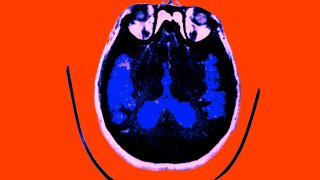
People who are obese and those with Alzheimer's disease show similar changes to regions of the brain responsible for long-term memory and other functions, according to a new study.
The findings of the study from McGill University in Quebec add to earlier work pointing to obesity as a significant factor in the development of Alzheimer’s.
In both groups, the outer layer of their brains, the cerebral cortex, had thinned, possibly reflecting a decrease in the number of brain cells, according to the study’s lead author, Filip Morys, a postdoctoral researcher at The Montreal Neurological Institute-Hospital of McGill University.
The good news is that for those who are obese and overweight, losing weight might slow their cognitive decline and decrease their risk for Alzheimer’s disease, according to the study.
The study — “Obesity-Associated Neurodegeneration Pattern Mimics Alzheimer’s Disease in an Observational Cohort Study” — was published this week in the Journal of Alzheimer’s Disease.
This research is the first to make a direct comparison between patterns of brain shrinkage in those who are obese and those who have Alzheimer’s diseases, Morys and his team said.
Get Tri-state area news delivered to your inbox. Sign up for NBC New York's News Headlines newsletter.
Obesity Rates Stay High
U.S. & World
In the U.S., obesity rates have more than doubled since 1980, according to the Harvard T.H. Chan School of Public Health. About one out of three adults, or 36%, are obese, the highest rates among of the world’s high-income countries. Rates have remained steady since 2003, but have climbed among men, non-Hispanic Black women and Mexican American women, according to the school.
Obesity is defined as having a body mass index or BMI of 30 or higher. Overweight is having a BMI of between 25.0 and 29.9.
Midlife obesity is linked to type 2 diabetes, high blood pressure and high cholesterol, and has been identified as a risk for developing Alzheimer’s disease.
Exactly why obesity is dangerous for the brain is not known. But obesity can damage the brain’s blood vessels, influence the brain through insulin resistance -- when cells stop responding to insulin -- and lead to the deposit of proteins characteristic of Alzheimer's disease. Another factor is systemic inflammation, Morys said.
Morys and his team set out to investigate how brain atrophy, or degeneration, compared in those with obesity and those with Alzheimer’s disease.
Researchers examined brain scans of more than 1,300 people, including 341 Alzheimer’s patients, 341 people who were obese, and 682 healthy individuals.
The brain scans came from the U.K. Biobank and the Alzheimer’s Disease Neuroimaging Initiative, based in North America.
The researchers found the most similar changes in two regions of the cortex, the outer covering of your brain which is made up of billions of nerve cells. The two regions, the right temporal cortex and left prefrontal cortex, are involved in many process including language, long-term memory and attention.
The researchers believe that neurodegeneration — in which nerve cells are damaged and die — is the key to the cognitive changes.
Morys said he did not know of any studies showing that losing weight would help slow the risk, but said, "so far, based on what we know now, it is reasonable to believe that weight loss might be one of the factors that could help slow the risk of Alzheimer's disease and other dementias."



